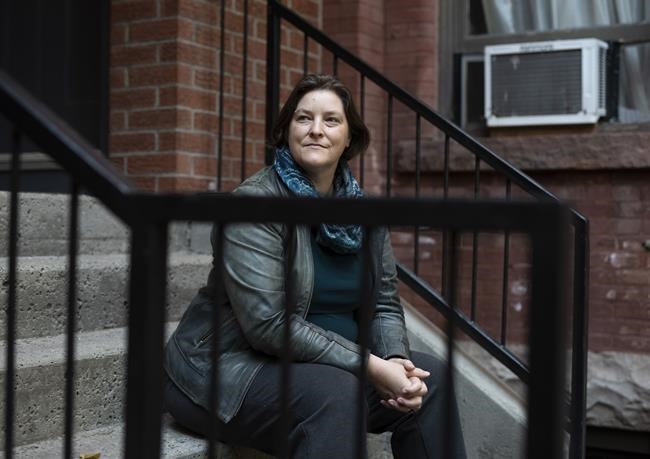OTTAWA — Kelly Main says she has never felt as exhausted and stressed during her 27 years of teaching high school as she has since returning to the classroom this fall during the COVID-19 pandemic.
As someone who teaches Grades 10 and 12 in Waterloo, Ont., she is facing the challenge of delivering material to students in class and online at the same time.
Waterloo Region School Board, like many others across the country, has adopted a hybrid system to have a smaller number of students in class at one time in a bid to avoid COVID-19 outbreaks.
"We're expected to deliver the material every day to both cohorts," she said of the 15 students she has in class with her and the other 15 who are studying remotely from home. The two groups switch places every five days.
"You're never going to be on the same page because it's obviously harder to be working online."
Rachel Collishaw, president of the Ontario History and Social Science Teachers' Association, says teachers are putting their students' well-being above their own mental health, which she thinks will end up causing long-term problems with stress.
Teachers are feeling stressed about becoming sick, but also being unable to adapt to the new hybrid teaching system, Collishaw said.
"It's basically doubling the workload on top of the COVID stress."
A recent survey of high school teachers from the Association for Canadian Studies found 78 per cent of respondents were afraid of getting COVID-19. Only 40 per cent said they were confident upholding safety protocols within their own classrooms.
The online survey of 250 high school teachers, mostly from Ontario and Alberta, was conducted from Sept. 4 to 14. It cannot be assigned a margin of error because internet-based polls are not considered random samples.
"A lot of these teachers, I would argue, also are on the front line," said Jack Jedwab, president of the Association for Canadian Studies.
And while about three-quarters of high school teachers who responded to the online survey said they understand the measures needed to support the well-being of students during the pandemic, Jedwab said it is concerning the rest did not.
"Teachers need more support in terms of addressing the challenges that they're facing with respect to the effects of the pandemic," he said.
On top of wearing a mask, goggles and using hand sanitizer dozens of times a day, Main says making sure that students follow those measures too is now also part of her workload.
"It's a lot more time," she said.
"It's exhausting because of course we're shouting through our masks and through our facial shields or goggles to be heard."
Even all those measures do not necessarily make her feel safe.
She said one of her students emailed her that she had a sore throat and a headache, which made Main concerned about her health.
Main, 53, has also stayed up until after midnight in recent weeks marking assignments and recording videos for her students.
"The day never ends," she said. "It never ends."
She also noted that some teachers are in an even tougher position, such as those who are newer to the profession or have younger children in the classroom.
"I consider myself to be in a pretty good position right out and I am still stressed," she said. She said she is worried that things could get worse.
"I don't know really how the others are coping," she said.
"I think we might be headed for some real burnouts."
This report by The Canadian Press was first published Oct. 2, 2020.
———
This story was produced with the financial assistance of the Facebook and Canadian Press News Fellowship.
Maan Alhmidi, The Canadian Press


